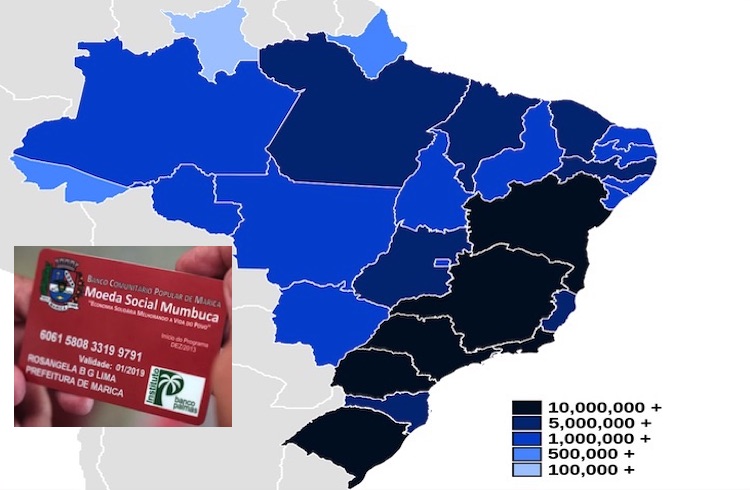By Pedro Telles
The writer is 2018-19 Atlantic Fellow for Social and Economic Equity at the International Inequalities Institute, London School of Economics.
SÃO PAULO (IDN) – Tens of millions of Brazilians have begun receiving basic income payments aimed at addressing the economic impact of COVID-19, following Congress’ approval of a bill prompted by a country-wide grassroots campaign that began just three weeks ago.
Like many crises, the coronavirus pandemic has served to make social and economic inequalities more evident around the world, often in very harsh ways. In Brazil, which has officially recorded 20,727 cases and 1,124 deaths from coronavirus as of April 13 (with actual figures likely to be 12 times higher), the poorest and most marginalized have been worst affected, with less wealth and fewer resources to draw on to protect themselves, their health and their livelihoods.
Building on decades of debate around the idea of a universal basic income, and spurred by the impact of the pandemic in one of the world’s most unequal nations, a coalition of over 160 Brazilian civil society organizations and movements seized the moment last month (March) to turn theory into practice with A Renda Básica que Queremos (The Basic Income that We Want).
Launched on March 20, the campaign swiftly built the support of over 500,000 citizens and 3,000 social media influencers. It also had the backing of five key organizations: Rede Brasileira de Renda Básica (Brazilian Basic Income Network), Coalizão Negra por Direitos (Black Coalition for Rights), Instituto Ethos de Empresas e Responsabilidade Social (Ethos Institute for Business and Social Responsibility), Nossas, and INESC – Instituto de Estudos Socioeconômicos (Institute for Socioeconomic Studies).
The campaign presented a detailed policy proposal to several members of Brazil’s national Congress, which was then put on the legislative agenda. The bill was approved unanimously by federal deputies and senators (with negotiated changes) by March 30. Three days later, it was sanctioned by President Jair Bolsonaro, who had previously proposed much more limited plans to supplement the income of Brazil’s most vulnerable.
By April 9, law became reality as the first payments of BRL 600 (more than half of the Brazilian minimum monthly wage) were being sent out. Up to 59 million low-income Brazilians will benefit directly, and twice that number indirectly, or more than half of the country’s population in total. The basic income payments will continue for at least three months, with a potential extension already foreseen in the approved law.
“We have no doubt that our campaign in favour of a clear and effective basic income policy proposal strongly influenced the decision taken by Congress that is now being implemented,” Leandro Ferreira, president of the Brazilian Basic Income Network, said.
“By directly and unconditionally helping those who need it the most, basic income has entered the landscape. It has begun as a policy option to address the current crisis, but it must remain in place for whatever comes after,” Ferreira added.
Many activists, experts and politicians now hope that the Emergency Basic Income will become a permanent one after the COVID-19 pandemic has subsided. There is also the hope that it will become universal, rather than limited to those who meet the criteria set out in the current law. Significantly, the new legislation means that basic income is now an established right in Brazil and taking back a right to income is never easy, however much a government might wish to do so.
This remarkable achievement, which will lift or keep tens of millions of Brazilians from poverty, is a reminder that crises can open political space for civil society to push for policy changes that would otherwise be hard or nearly impossible to achieve. When public attention turns to the need for urgent action around inequalities and their consequences, politicians become more sensitive to calls for bold action.
Brazil’s new basic income law is a testament to the strength of people power in pushing for policies that fight inequality, even under the rule of far-right administrations. It is also a clear example of how civil society can find opportunities to set the agenda during the COVID-19 crisis, demanding not only basic income, but also universal health care and other key policies for equity. The fight against inequality goes on.
Note: Pedro Telles is also a co-founder of Bancada Ativista (Activist Caucus), an independent political movement in Brazil focused on electing activists to political office, and currently Chief of Staff for the movement’s collective State Deputy mandate in São Paulo – where eight activists who were elected jointly with over 149,000 votes share a single office in the country’s largest state parliament. He tweets at @pedrortelles. [IDN-InDepthNews – 17 April 2020]


